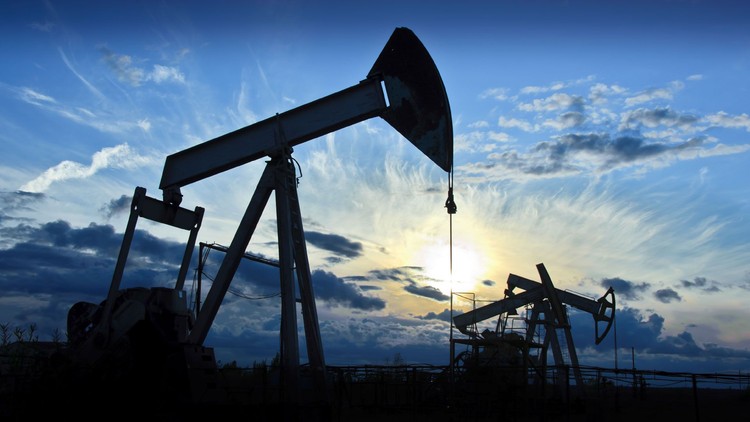Your complete guide to a successful career in Oil & Gas
6 courses in 1 : Oil Production Economics Trading Pricing Specifications Logistics Petroleum Refining and Petrochemicals
4.43 (527 reviews)

3,007
students
12 hours
content
Nov 2024
last update
$54.99
regular price
What you will learn
COURSE #1 : Gain a broad perspective of the global oil and gas industry and understand the role of oil in our life
COURSE #1 : Discover the history of the oil industry from its earliest development at the end of the 19th century to the current situation
COURSE #1 : Interpret the evolution of the factors affecting the energy supply and demand (crude prices, technology, reserves, geopolitics, geography, environment...)
COURSE #1 : Identify the actors of the energy scene and their strategic guidelines (producer and consumer countries, national, independent and international oil companies, international organizations (OPEC, IEA...))
COURSE #1 : Describe the different types of energy resources (conventional, unconventional, renewable & fossil)
COURSE #1 : Understand and appreciate the future energy challenges in terms of production and demand
COURSE #2 : Grasp the main characteristics of petroleum products and their relevance for end-users
COURSE #2 : List the key properties for automotive fuels (now and in the future)
COURSE #2 : Identify recent changes and future trends for the petroleum products’ specifications, markets and demand
COURSE #2 : Identify the main trends of fuel evolution due to: new regulations and/or new motor technologies
COURSE #2 : Understand how the main properties of each petroleum products are measured, checked and controlled using standard quality control tests
COURSE #2 : Understand the tests significance and accuracy of the methods
COURSE #3 : Review the different oil trading markets by type of transaction
COURSE #3 : Summarize the operation of the physical and financial oil markets
COURSE #3 : Review the different types of contracts: long term, spot and forward
COURSE #3 : Understand how crude oil and petroleum products are traded
COURSE #3 : Understand the pricing mechanism of crude oil and petroleum products
COURSE #3 : Analyze the parameters which influence prices of crude oil and prices of petroleum products
COURSE #3 : Review the different exchanges and their organization: the cases of NYMEX and ICE
COURSE #3 : Comprehend hedging techniques available for protection against fluctuations in prices
COURSE #3 : Understand the principle of financial derivative products like Swaps and Options
COURSE #4 : Gain a broad perspective of the global oil and gas business : supply and transportation
COURSE #4 : Understand logistics and supply principles and practices
COURSE #4 : Use Worldscale reference to charter a ship and to calculate the profitability
COURSE #4 : Understand how the commercial petroleum products (gasoline, diesel, fuel) are dispatched from the refineries to the market
COURSE #5 : Comprehend the basic differences between exploration, refining and petrochemicals
COURSE #5 : Understand the basics of the various refining processes
COURSE #5 : Learn what crudes are made of and understand the chemical properties of their hydrocarbon components like paraffins, naphthenes, aromatics...
COURSE #5 : Learn how the major refining processes work and interact with each other (distillation, isomerization, alkylation, catalytic reforming, hydrotreater, sulfur plant, fluid catalytic cracking, hydrocracking, delayed coking, asphalt/lube plant...)
COURSE #5 : Understand how the main petroleum products are made (LPG, gasoline, kerosene, diesel fuel, heating oil, heavy fuel, asphalts, lubricants...)
COURSE #5 : Appreciate that aromatics are important to the petrochemical industry even though refineries are trying to minimize these in gasoline due to their toxic properties
COURSE #5 : Appreciate that olefinic and aromatic petrochemical precursors are specialty chemicals produced by the refining processes
COURSE #6 : Comprehend the basic differences between petroleum refining and petrochemicals
COURSE #6 : Review the interactions with refining (objectives, advantages, flow and services exchanges…)
COURSE #6 : Situate the petrochemical industry in its energy and geographic environment
COURSE #6 : Explain the different steps of the petrochemical industry
COURSE #6 : Understand the operating principles of the steam cracking process
COURSE #6 : Know the origin and uses of the main olefinic and aromatic intermediates
COURSE #6 : Know the main markets for olefins, C4 cuts and aromatics
COURSE #6 : Know the opening on the petrochemistry of the main plastics
COURSE #6 : Know the outlets and main industrial uses of olefinics, diolefinics and aromatics hydrocarbons
Related Topics
2436324
udemy ID
6/29/2019
course created date
10/29/2019
course indexed date
Bot
course submited by